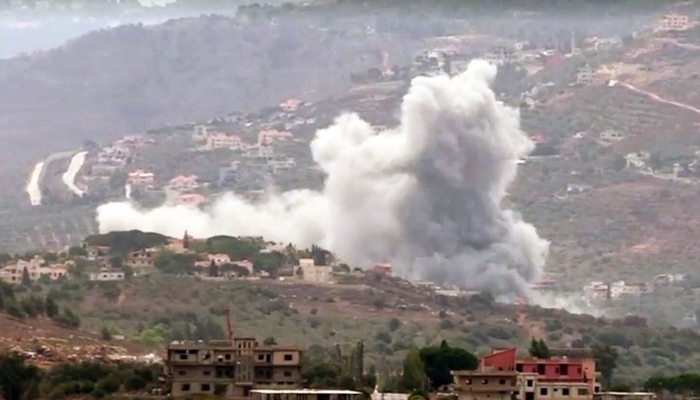Israel has escalated its conflict with Hezbollah, killing a top commander in an airstrike on Beirut’s southern suburbs. Two security sources in Lebanon confirmed the death of Ibrahim Aqil, Hezbollah’s operations commander.
Aqil, a key member of Hezbollah’s military leadership, was killed alongside members of the elite Radwan Unit during a meeting. The attack resulted in eight deaths and 59 wounded, according to Lebanon’s health ministry. The strike marked a major blow to Hezbollah, which has faced increased attacks from Israel in recent weeks.
Hezbollah Suffers Heavy Losses
This attack follows a devastating incident earlier in the week where pagers and walkie-talkies used by Hezbollah members exploded, killing 37 people and injuring thousands. While Israel has not confirmed responsibility, the incident is widely believed to be part of its operations against the Iran-backed group.
Buildings Destroyed in Airstrike
Lebanon’s civil defense teams are searching for survivors under the rubble of two buildings hit by the strike. Footage from the scene shows widespread damage, with debris scattered and burnt-out cars lining the streets. Reuters witnesses reported hearing jets over Beirut and seeing smoke rising from the targeted area.
Israel Confirms Strike
The Israeli military confirmed conducting a “targeted strike” in Beirut but provided no further details. This is the second time in two months that Israel has targeted Hezbollah’s leadership. In July, Israel killed Fuad Shukr, another senior Hezbollah military commander, in a similar strike.
Hezbollah Retaliates with Rocket Fire
In response, Hezbollah fired Katyusha rockets at what it claimed to be Israel’s main intelligence headquarters in northern Israel. Israeli media reported heavy rocket fire in the region, and warning sirens were heard in northern Israel.
U.S. and Global Reactions
Hezbollah’s commander, Ibrahim Aqil, had a $7 million bounty on his head from the United States due to his involvement in the 1983 bombing of U.S. Marines in Lebanon. Despite this, U.S. national security spokesman John Kirby stated that Israel had not notified the U.S. prior to the strike. He also urged American citizens to avoid traveling to Lebanon due to the escalating conflict.
War Could Be Avoided
Kirby expressed hope that the conflict between Israel and Hezbollah could still be prevented from escalating into full-scale war. “War is not inevitable,” he said, referring to the Blue Line, the frontier between Israel and Lebanon.
Tensions Rising on Both Sides
The conflict, ignited by the ongoing Gaza war, has intensified in the past week. Israel’s airstrikes on southern Lebanon on Thursday were the most intense since the current conflict began a year ago. Tens of thousands of people have been displaced on both sides of the border since the fighting resumed, reminiscent of the 2006 Israel-Hezbollah war.
Israeli Leadership Responds
Following the latest developments, Israeli Prime Minister Benjamin Netanyahu postponed his trip to the United Nations General Assembly in New York by a day. He is now scheduled to arrive on Wednesday due to the situation in Lebanon. Meanwhile, Israel’s military leadership is closely monitoring the situation, with army chief General Herzi Halevi meeting top commanders to assess the ongoing conflict.
Britain Monitors Situation Closely
In response to the escalating conflict, Britain’s Foreign Secretary David Lammy chaired a meeting of the government’s emergency committee (COBR) to discuss the situation in Lebanon. “The risk of escalation remains high,” said a Foreign Office statement following the meeting.
As the conflict between Israel and Hezbollah deepens, concerns are growing that it could widen further, leading to more casualties and destruction on both sides. Both international and regional powers are closely monitoring the situation as tensions continue to rise in the Middle East.
Follow us on Google News, Instagram, YouTube, Facebook, Whats App, and TikTok for latest updates
